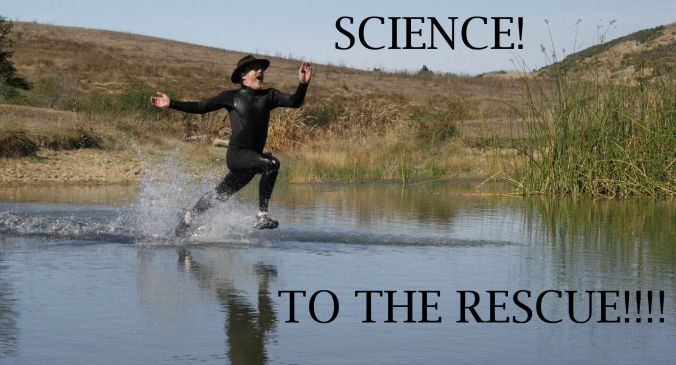Hello and Welcome to The Science Dog!
This blog provides a short introduction of me (Linda Case), and my reasons for writing a blog entitled “The Science Dog”. I am a science writer, canine nutritionist and dog trainer. I earned a B.S. in Animal Sciences at Cornell University and an M.S. in Canine/Feline Nutrition at the University of Illinois. Following graduate school, I was a lecturer in canine and feline science in the Animal Sciences Department at the University of Illinois for 15 years and then taught companion animal behavior and training at the College of Veterinary Medicine.
I am the author of numerous publications and nine books, including Feeding Smart with The Science Dog, Dog Smart, Beware the Straw Man, and Dog Food Logic (see the Books section of The Science Dog for a complete list). I owned a dog training school (AutumnGold Dog Training Center) for many years and currently own and operate The Science Dog Courses, an on-line education program that provides courses and webinars to pet owners and professionals.
My husband and I live in central Illinois and share ourr lives with three amazing dogs: Cooper, Alice and Stanley, and Pete the cat. In addition to writing and teaching, I enjoy hiking, swimming, cycling, yoga, and gardening – all activities that I happily shares with our dogs.
Plus Pete, the formerly feral kitty (who does not yet know that this blog is dedicated primarily to animals of the canis genus…..let’s keep the secret for a bit).
In a nutshell, my work, my life and my happiness revolve fully and completely around dogs. I write about dogs, train dogs, teach other folks about dogs, play, run, hike and cuddle with dogs, and am fully capable of talking for hours on end about……you guessed it,,,,,,,dogs. I consider myself to be a card-carrying, lifetime, proud member of the “dog person” club.
If you are reading this blog and have gotten this far, I am reasonably certain that you too are a dog person and that you too love your dog (most probably in the plural form), have friends who love dogs, enjoy dog-related activities and/or sports, and if you are lucky, may even be able to count a dog-related profession or volunteer effort as part of your life.
So, what does all of this dog adoration have to do with science? Well, a whole lot actually. Even though I am aware that the word “science” may bring this to mind for some:
And, for others, who may be thinking back to high school chemistry, this may be where your mind goes when you hear the word “science”:
However, the real image for science that you may want to consider if you love dogs, is this one:
We need science to make evidence-based decisions for our dogs because, well, they cannot do it for themselves. (Really, our dogs are smart, but they still need a bit of help with science). The scientific method provides us with a systematic, testable (i.e. verifiable) approach to studying dogs’ health, nutrient needs, illnesses, responses to medications and novel nutrients, behaviors, and responses to different training methods. In recent years, scientific study has also provided information that aids in our understanding of how the human mind works when we make decisions and how we are all susceptible to errors in judgment that occur expressly because we love our dogs so much.
Without scientific evidence we are susceptible to making decisions for our dogs based upon conjecture, testimony, tradition, myth, and sometimes even based upon what Joe next door (who happens to know a lot about dogs) tells us. And even though Joe may be very sincere when he informs you that dogs eat grass because their diet is lacking in vitamin C, fiber, B-vitamins (insert any nutrient here), Joe’s recommendation is often based upon a belief rather than upon actual evidence.
In this blog, we look for the evidence. So, while I am always willing and happy to explore all new ideas about nutrition, health, behavior, and training, my mantra is and will continue to be: “SHOW ME THE DATA”
As we see in The Science Dog Blog, we are all required to make a LOT of decisions for our dogs. Science helps us to sort truth from fiction and evidence-based choices from fanciful myths. My hope, in this journey, is to show how science is not only necessary and helpful, but also very interesting and fun!













Thank you, Linda, for starting this blog! I am anxiously awaiting future entries! I love to be able to share information about how to make life better for our dogs, and it will be even more meaningful to be able to back up that info with scientific facts.
LikeLike
Hi Mary – You (and your dogs) are very welcome! I have several topics “in the queue” so far, but would love to hear ideas or questions from other dog folks about topics that they are interested in exploring. Just let me know if anything comes to mind!
LikeLike
What training equipment should be used and why? I was on a website this morning that claimed using a head halter caused terrible pain (they didn’t say how) and that the no-pull harnesses also caused pain because they separated the shoulder blades. They were big advocates of prong collars and very against food rewards. Mostly I train with no collar or leash (in my house and fenced yard) using operant conditioning with food and toys as primary reinforcement. When we leave the house they wear flat buckle collars. I have used head halters on large dogs that pull hard simply to keep them from damaging their trachea with pressure on the collar. I do not pull or jerk the dog in any way and I have not had a dog show discomfort. I understand the science behind my training method of choice and am always anxious to learn more about it. In fact I’m going to a seminar with Bob Bailey this weekend 🙂
LikeLike
Wonderful that you are doing this, I get very frustrated at all the anecdotal evidence used to ‘prove’ whatever someone is arguing for. On that note I would be very interested in hard evidence about any of the supplements that are supposed to promote joint health. My GSD Thorn snapped her right cruciate ligament this summer and there is degeneration of that joint (though luckily not of her left knee), my vet is recomending a supplement but doesn’t seem to have any hard evidence to back up his choice. I am going to push him on this, but a disinterested opinion would be really welcome.
LikeLike
Hi Jazzlet – Thanks for your comment. You are right to question a recommendation for a nutraceutical that protects joint health (also called chondroprotective agents), as there is very little evidence of efficacy. The most commonly used agents are glucosamine and chondroitin sulfate. I talk about these agents (and the lack of solid evidence for their use) in my upcoming book, “Dog Food Logic”, but there is also a great website, called “BestBets for Vets” that presents results of meta-analyses of various therapies. Here is a link to their discussion of a comparison between glucosamine/CS and the NSAIDS carprofen and meloxicam, FYI:
https://bestbetsforvets.org/bet/23 . I hope this helps with your decision and in your discussions with your veterinarian. Linda
LikeLike
Will any of your topics be about interdog aggression?
LikeLike
Hi Lynn, The next blog will touch on it (used as an example); that post should be up in a few days. We can always explore the topic of reactive dogs in greater depth in the comments/discussion section of that post or in later blogs as well. Thanks!
LikeLike
I will definitely keep my eye out for that! Will I get some type of notification once it is available? I’ve been struggling with this issue for about 10 months now. I will never give up on my boys.
LikeLike
Hi Mrs. Lindia! This is Arwen. I hope you don’t mind me, my Mom, and Aunt Mage stopping by. We would like to pass along stuff to our Human caretaker (Dad). Mostly right now we are interested in food. Aunt Mage is getting old- she’s 18, and I guess my Mom is too. I’m 5 now so I guess I’ll start getting old too soon. I hope you don’t mind Dogs stopping by.
Butt sniffs and puppydog kisses!
LikeLike
Well Hello Arwen! Thank you for stopping by The Science Dog blog. Of course dogs are welcome to visit – especially smart dogs like yourself who know how to read! 🙂 Your (human) dad must be taking great care of you and your mom and aunt, to see them reach such wonderful senior ages. I look forward to getting to know all of you as we blog along!
LikeLike
My Dad said he would take me shopping tomorrow I love shopping. Daddy puts me in a cart and pushes me around and I get to try samples of treats and pick out the one I like. He also lets me pick out the food we will eat for the next month. Because Mage is 18 and my Mom is 12 I try to be careful about what we eat. Dad heard that for older dogs we should eat food that was low in protein. Do you have any information about what older dogs should be eating and maybe some recommendations of food we would find in a big box pet store? I don’t need any info on treats. Treats just have to have BOTH peanut butter and cheese!
Thanks!
Arwen
LikeLike
Thanks for starting this blog! We’re looking forward to reading and sharing with the Mary’s Dogs community!
LikeLike
Hi Mary – Thanks for following! I look forward to hearing more from you. And, thanks for all that you do to help dogs – love following your work on FB!
LikeLike
yay! Looking forward to your blog. I am a new professional trainer and I am always learning how to become more skilled in what I do. Let me just say thank you much for sharing your knowledge.
LikeLike
Hi Paula – Welcome! I hope that you enjoy the blog – more to be posted very soon!
LikeLike
Why DO dogs eat grass?
LikeLike
Good question – And one to which there is no definitive answer. Like most behaviors that we see in dogs (and other species), there are probably multiple factors that influence a dog’s interest in eating grass. The belief that dogs eat grass when they are feeling ill and use it as a naturally-occurring emetic (compound to make them vomit), is a great example of a cognitive (thinking) error called the “post hoc error”. This occurs when we mistakenly attribute cause and effect simply because one action/phenomenon follows another (more about this type of error in thinking in a future post). In this case though, keep in mind that while dogs do (sometimes) vomit after eating grass, this sequence is NOT evidence that the dog chose to eat grass in order to induce his/her own vomiting.
There are also no nutrition-related explanations that have support; meaning we have (to date) no evidence suggesting that dogs consume grass in reaction to a particular nutrient need. This does not mean that such a cause has been disproven; just that we cannot and should not make statements about nutrition as a cause, since there is no evidence as such.
So what could it be? Well, given the dog’s scavenging nature (known/proven) and relatively omnivorous nutritional needs (evolutionary history supports that dog as a meat-eating omnivore), conjecture is that the domestic dog eats grass because…..um…..they like the way it tastes. Science. Exciting stuff. 🙂
LikeLike
Hi again- this is Arwen. I eat grass as does my Mom and Mage. We don’t throw it up. We have food and water available to us 24/7-so its not because we are hungry. Don’t really know why we do it, I just thought it was sorta like when we pick up sticks and chew them… for no reason.
LikeLike
Hi Linda!
I am so excited that you decided to endeavor on blogging!
Above is the best answer I have ever heard about grass eating. I still say, “Marley must have a tummy ache’ when I see him grazing. And he loves to graze, especially near a creek. Cow patties and squirrel head goes hand in hand I would assume. lol
Looking forward the topics and learning much.
Yay Linda!
LikeLike
I have a wolfdog that on three different occasions has gone to vomit, going to the door to be let out (they do this as I have ‘trained’ them by leaping up and opening it if they go urk!) She then rushes straight to a patch of longish grass I have for them, snatches mouthfuls and then vomits. She may repeat the behaviour. That is the only time she eats the grass, and I have not seen the others do it, they just go out and vomit if they need to. I was interested, as it seems to back up the grass/vomiting theory, which I was also sceptical about!
LikeLike
Dog training is so riddled with myth and superstition, I’m excited to see folks trying to get to the scientific basis of things. It makes my life as a researcher seem useful when folks actually use the data we generate!
LikeLike
Hi Kristina – Agreed 100 percent! I am thrilled to see you following the blog and look forward to hearing more from you!
LikeLike
Hi Linda, I have followed you years now and I’m looking forward to your new Blog.
LikeLike
Hello Richard! I am so glad to see you here. I look forward to continuing our e-friendship via this blog!
LikeLike
I’m very interested in, and ignorant about, canine nutrition. Our beagle’s ear infections cleared up and our corgi mix’s coat went glossy when we migrated from high-quality, ‘natural’ kibble to home-made (Pitcairn diet).
I haven’t a clue if the recipe is good, bad, or indifferent, except that after 4 years, the dogs are healthy and their teeth free of tartar.
I’m four-square in the Behaviorism camp and appreciate your nod to evidence.
Sometimes it’s difficult to distinguish between organic and clinical issues and behavior problems. For example, the 6-year old corgi/terrier mix put on weight, became listless and began drinking tons of water. Cushings? Tested and that wasn’t it. Diet? Maybe, but the symptoms began after several years on the diet. Then I changed *my* behavior, and while Zippy still drinks a lot of H2O, some of the other elements disappeared. Still, I’m wondering if several years on the diet could have led to a nutritional deficiency.
So, I’m excited by the premise of your blog. There are a boatload of pundits blogging about canine behavior, but you are the first I’ve found with an eye towards nutrition.Fingers crossed you deliver on the promise! I’ll be your biggest champion.
Thanks!
LikeLike
Hi Harry! Welcome to The Science Dog and thanks for following! We will definitely be chatting a lot about evidence-based nutrition, as this is the topic of my newest book (“Dog Food Logic”) which should be available from Dogwise soon. The first series “Your face is gonna freeze like that” is behavior (even though it may not seem like it yet……stay tuned!). Looking forward to hearing more about you and your dogs!
LikeLike
Thank you for visiting my blog, Linda. I’m very pleased to meet you and look forward to more posts. I am a trainer so my life pretty much revolves around dogs. I use positive reinforcement training methods which are based on proven science so I am very interested in a scientific look at dogs and what we can learn about them to give them the best lives possible.
Max and I are eagerly awaiting your next post!
LikeLike
Hi Linda – It sounds like we have a lot in common! I look forward to reading your blog and to having you follow The Science Dog!
LikeLike
I need references to scientific data that debunks dominance theory for dogs. Thanks in advance for your help.
LikeLike
So what is the real reason for dogs eating grass based on evidence?
LikeLike
Neat. We’ll be tuning in at our house.
LikeLike
Thanks Roxanne – and Welcome!
LikeLike
Good to see this blog! Dog Science and the Science of Dogs is important, and I am happy to see a strong interest in the subject, especially through new blogs like this one. I strive to propose canine science on my blog, as well: http://www.LiteraryDogs.com, and I welcome inputs by others who are interested in serious canine studies. Well done, Roxanne~!
LikeLike
Hi Don, Thanks for your comment and welcome! I follow Literary Dogs and enjoy it tremendously! Will be happy to promote it to other dog folks! Best wishes, Linda
LikeLike
Please consider having a FB page – even if you only use it to post your blog. I’d love to interact in that venue! thanks for this!
LikeLike
Hi Ev – Great idea! Now, why didn’t I think of that?! (Forehead thumping noise). 🙂 I will get this set up and post a notice and put a link up shortly! (I have noticed that only folks who are members of WordPress and/or who have a “gravatar” can comment on posts, which I think is quite limiting to conversations. A FB page would help to remedy that). Thanks! Linda
LikeLike
Pingback: 10 Years of Dog Science | The Science Dog